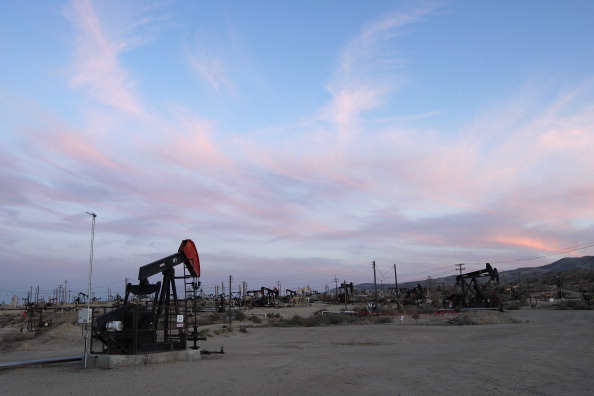The main reason carbon emissions are unlikely to decrease in the short term? Coal. Leave it to Manhattan Institute Senior Fellow Robert Bryce to rain on the renewable energy parade. It’s not that he is anti-renewable energy, or even pro coal, but his analysis starkly demonstrates current energy fundamentals and projected trends, which are heavily… Keep reading →
Manhattan Institute
Energy Quote of the Day: ‘Highly Unlikely that Global Carbon-dioxide Emissions Will Fall Anytime Soon’
By Jared AndersonSign up and get Breaking Energy news in your inbox.
We will never sell or share your information without your consent. See our privacy policy.Energy Revolution Rolls On, Federal Role Declines
By Energy Tomorrow BlogLet’s make a couple of points with the juxtaposition of the newest U.S. report on energy production on federal lands and a pair of new analyses people are talking about this week. First, there’s this piece by the Manhattan Institute’s Jared Meyer on the Real Clear Energy website, asserting that surging U.S. crude oil production is playing… Keep reading →
We recently covered Manhattan Institute Senior Fellow Robert Bryce’s most recent book launch event, where he gave an upbeat and provocative synopsis of his latest work “Smaller Faster Lighter Denser Cheaper,” which praises technology’s virtues and all the positive things technological innovation has done for society. Bryce also goes head-to-head with climate activist Bill McKibben… Keep reading →
Robert Bryce – Senior Manhattan Institute Fellow – gave a vibrant talk yesterday in New York City at a gathering called to launch his latest book “Smaller Faster Lighter Denser Cheaper,” which he describes as a “rebuke to the catastrophists.” The premise is that technology and innovation are helping people live healthier, longer, more fulfilled… Keep reading →
Although the US does not yet export crude oil or LNG from the lower 48, the oil and gas production boom that exploded onto the scene in the past few years is having knock-on effects in other countries. So which ones benefit and which are getting left behind? Industry experts discussed the geopolitical implications associated… Keep reading →
It is difficult to exaggerate the scale of the changes that the burgeoning natural gas and oil production in the US are setting in motion, so some numbers help set the tone. Numbers like $50 million a mile, and $70 billion a year.
Those are two of the figures cited by Manhattan Institute senior fellow Robert Bryce, who writes about and studies the energy sector for the think tank. Breaking Energy spoke with him at the US Association for Energy Economics conference in Austin, Texas in November, and he detailed some of the opportunities and the challenges for the natural gas sector. Keep reading →
 Prime Minister Stephen Harper (L) of Canada welcomes US President Barack Obama to the G8 Summit at Deerhurst Resort in Huntsville, Ontario, on June 25, 2010.
Prime Minister Stephen Harper (L) of Canada welcomes US President Barack Obama to the G8 Summit at Deerhurst Resort in Huntsville, Ontario, on June 25, 2010.
The recently announced high-profile oil and gas acquisitions by Chinese state-controlled companies highlight the numerous opportunities for the US and Canada to both partner and compete in global energy markets. Keep reading →

For the US, aspiring to be merely energy independent is “too modest,” says Manhattan Institute Adjunct Fellow Mark Mills.
Instead, the US should collaborate with Canada and Mexico to not only fulfill domestic needs but make North America the world’s largest energy supplier, Mills says in a new report, “Unleashing the North American Energy Colossus.” Keep reading →

Power prices have been dipping around the country because of low natural gas prices, but some states could face the potential of higher prices for electricity as more renewable energy comes online and seeking to replace threatened baseload power could drive prices higher regardless.
The Manhattan Institute released a study on February 28 by Senior Fellow Robert Bryce concluding US renewable portfolio standards (RPS) for power generation appear to pose risks to a fragile economy — increasing electricity costs in many states at a time when consumers are struggling with high unemployment and discretionary spending constraints. Keep reading →






